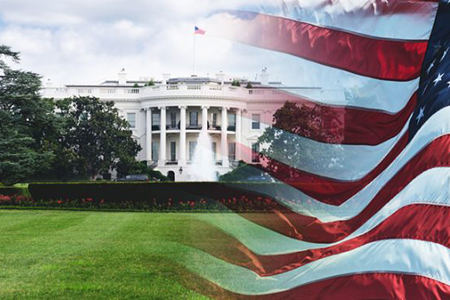President-Elect Donald Trump made his early fortune in the real estate sector, and his business holdings clearly indicate he is a firm believer in the economic power of the U.S. housing market. Real estate analysts are hopeful that Trump’s business background will boost housing significantly. Despite concerns regarding his cabinet pick for the top post at the Department of Housing and Urban Development (HUD), Trump believes that HUD should go through a process of reform that cuts down on bureaucracy.
The question of how the housing market will react in 2017 and beyond can be answered in different ways:
Positive Economic Sentiment
The U.S. housing market is intrinsically tied to the global economy. On the night of the presidential election, the global markets tumbled momentarily before getting back to normal. Since that incredible night, the Dow Jones Industrial Average has come very close to closing at 20,000 points, the highest level in the history of Wall Street.
According to Fortune, based on economic sentiment alone, financial markets seem to favor a Trump presidency, which means that the housing market is bound to react in a similar manner. The National Association of Home Builders (NAHB) recently announced that confidence among the residential construction sector is at a nine-year high.
Higher Mortgage Costs
The final meeting of the Federal Reserve this year resulted in a decision to raise interest rates, with Fed Chair Janet Yellen hinting at the possibility of rates increasing a couple of times in 2017. If you are planning on buying a home or refinancing your existing mortgage, be ready to pay more for financing costs during the Trump Administration. Yellen’s statements were very clear insofar as her intention of cooling down market volatility with higher rates. She has made allusions to the fiscal package that Trump plans to introduce during his first 100 days in office, but according to The Atlantic, if the stimulus results in a Wall Street bonanza, she will be ready to put out the fire of irrational exuberance with a bucketful of higher interest rates. Naturally, you will end up paying more as a mortgage borrower.
The Housing Market May Not Be Affected after All
Some analysts are brushing off the idea of the Trump Administration having a profound effect on the market. This rationale is based on the fact that the housing market should have reacted negatively to the presidential campaign. Nothing of the sort happened; this can be construed as the housing market operating independently from political sentiment.
As for other factors related to housing, insuring your home and paying your utilities should not be affected unless the U.S. enters a period of high inflation. There is somewhat of a chance that this may happen; after all, the Fed has been concerned that the economic recovery of the U.S. has largely occurred without a substantial increase of inflation rates. The 10-year Treasury Yield has been inching up since the summer, and bond market analysts believed that this was a sure sign of inflation. They may have been right; the Fed would not have touched interest rates unless there was at least some hint of upcoming inflation. Oil prices are slightly on the rise, and wages are also growing. If Trump’s economic policies are too generous and spendthrift, inflation rates could climb way up, which could impact the housing market negatively.
All signs seems to point that the Fed will not allow inflation to grow out of control; you can rest assured that the housing market will remain stable for the time being.
This was originally published on RISMedia’s blog, Housecall. Visit the blog daily for housing and real estate tips and trends. Like Housecall on Facebook and follow @HousecallBlog on Twitter.











